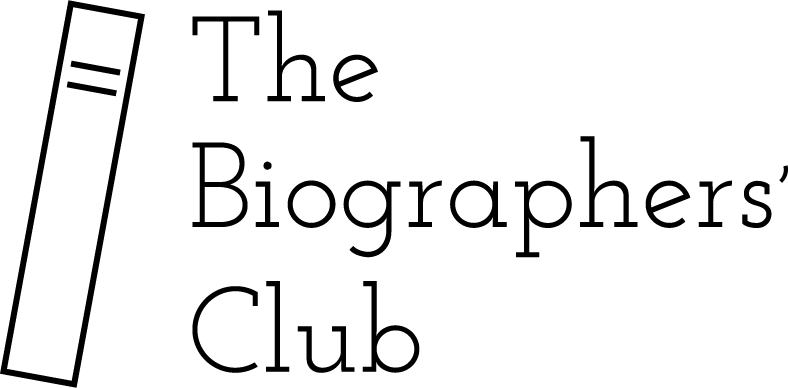The shortlist for the 2024 Elizabeth Buccleuch Prize has been announced. The prize awards £2,000 to the best proposal for an uncommissioned first biography. The Prize, run by the Biographers’ Club, is generously sponsored by the Duke of Buccleuch in memory of his late wife Elizabeth, Duchess of Buccleuch(1954-2023).
The shortlisted proposals are (in alphabetical order):
Jane Anson, Lili, Countess 57628
The compelling story of Elisabeth ‘Lili’ de Chambure, a French aristocrat
who was feted for her beauty and style, married two Barons, was a friend of Elsa Schiaparelli and Christian Bérard, and was murdered in Ravensbruck in the final days of WWII. She was deported on the last train out of Paris, just days before the Allies liberated the city, because of her refusal to divorce her second husband, the Jewish Baron Philippe de Rothschild. She was witness to many of the explosive events of the 1930s and 1940s in Europe, and was ultimately destroyed by them.
David Campbell, American Spygent: Wartime London’s Society Sergeant
It is hard to read any account of wartime London Society without coming across the mysterious ‘Sergeant’, AKA Stuart Preston, a Zelig-like figure who
moved effortlessly through the diaries and letters of James Lees-Milne, Evelyn Waugh, Nancy Mitford, Cyril Connolly, Chips Channon, Cecil Beaton – and more. An American sergeant of conspicuous looks and charm, he became a celebrity, known more for his fame than any inherent talent. But what led him to London, and what lay behind the mysteries of this deliberately secretive man? Campbell teases out the clues from personal papers and archives, and the memories of those who knew him in later life in Paris.
Penelope Jarvis, Fabulous Cousins: The Artistic Legacy of a Russian Family 1795–2024
Jarvis traces the cultural impact of two Russian families, the Benois and the Cavos, whose intermarrying and exile produced an astonishing circle of well-known artists across continents and centuries. Among family members were the father of Russian opera; the architect of the Bolshoi and Marinsky Theatres; Alexandre Benois, co-founder with Diaghilev of the Ballets Russes; Peter Ustinov, son of Klop Ustinov, British spy; painters Nadia and Hélene Benois, and Sergei Tcherepnin, inventor of the synthesiser. Their interweaving lives across Europe and America are traced from a treasure trove of documents and family memoirs to reveal an extraordinary lineage of creative endeavour linking post-Revolutionary Russia with our world today.
Harley Mitford, Bernard Levin: The Self-Fashioning of a ‘Renaissance Man’
If critic and columnist Bernard Levin (1928-2004) was hoping to escape the biographers’ pen, he was unrealistic – he was too celebrated a writer, too engaging a polemicist, too flamboyant a character to escape capture for ever.
He left an indelible mark on the cultural landscape of post-war Britain, and the range of his comment, not just for the Times, but the BBC, Channel 4, the Mail, Express, Guardian, Statesman and Spectator, has never been equalled. Behind the memorable columns and broadcasts lay a paradoxical and secretive individual who cultivated a range of personae that made him a ‘Renaissance man’ for the twentieth century. 2028 will mark the centenary of his birth, the perfect moment for a biography.
Mark Nayler, The Popular Philosopher: A Life of Bryan Magee
Growing up in the gas-lit Cockney streets of Hoxton, London’s worst slum, between the wars was an unlikely start in life for one of Britain’s best-known philosophers, Bryan Magee. His trajectory was meteoric, leading him to pursue simultaneous careers as a novelist, philosopher, journalist, TV and radio presenter, arts critic and Labour MP. He enjoyed his varied and gregarious life to the full, keeping friends and lovers close, yet choosing to live and travel alone with only books for company. He was a man riven with contradictions, personal and political, for whom the puzzles of human existence were personal, while he brought them to the attention of millions. In this sympathetic and nuanced treatment, he will get the biography he deserves.
Alan Stewart, Everything you Get Must be Fought For: the Life of Bob Stewart
This often startling life of one of Britain’s forgotten radicals explores how one family of committed spies and revolutionaries experienced the insanity of Stalin’s purges against the background of international communism. Bob Stewart became a founder member of the Communist Party of Great Britain in 1920 after hearing of the Bolshevik Revolution in Russia, and spent the next 50 years in the service of world communism. He came into contact with Lenin, Stalin and Mao, and at one point controlled the spy network that included the Cambridge Five. His story is told by his great-grandson, teasing out the truth between the ‘official’ version told in Bob’s memoirs and the evidence revealed in MI5’s security files.
The winner will be announced and the Prize awarded at the Biographers’ Club Christmas Party, to be held on Wednesday 11th December 6.30-8.30 at E6 Albany, Piccadilly, London W1J 0AR

